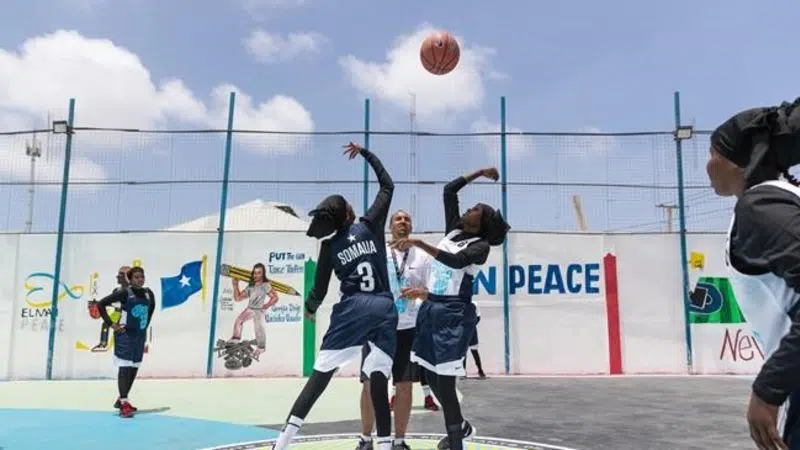
Raptors president Ujiri: Basketball has been a breath of fresh air in Somalia
TORONTO — Masai Ujiri could see it in the proud posture of the young female players. It was written in their wide smiles.
The Toronto Raptors president was in Mogadishu last week for the last stop on his annual Giants of Africa tour — and first visit to Somalia in the organization’s 16 years.
“We have to preach equality on the continent and all over the world,” Ujiri said. “There’s as much talent in girls as there is in boys. They have to be given the opportunity too. At the end of the day, you see them walking taller, which was very important for us to continue on this journey.”
Ujiri has barely paused to take a breath since the Raptors won the NBA championship in June. There was free agency and the departure of superstar Kawhi Leonard to the Los Angeles Clippers.

